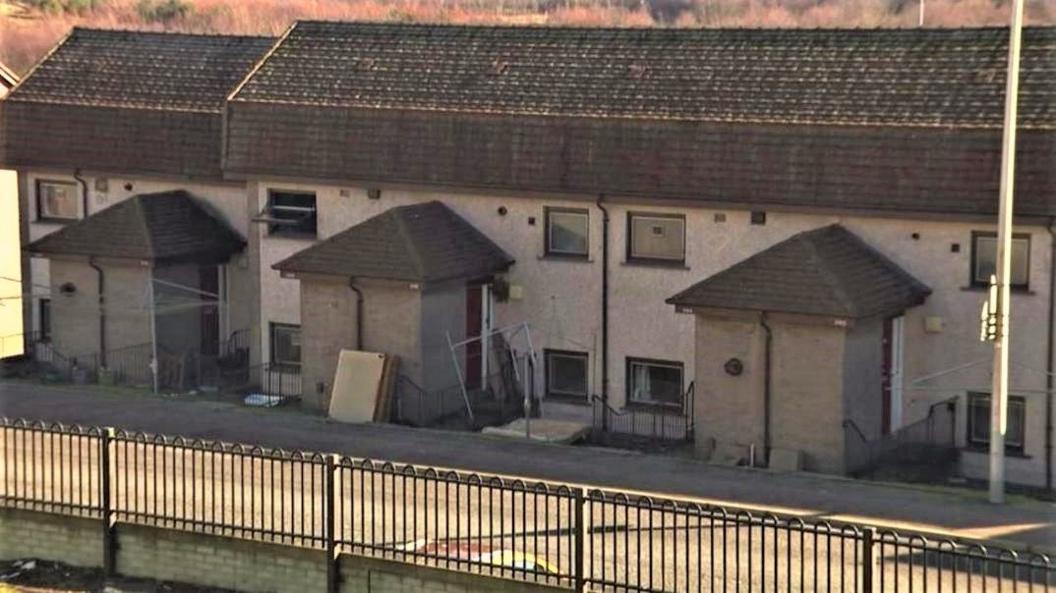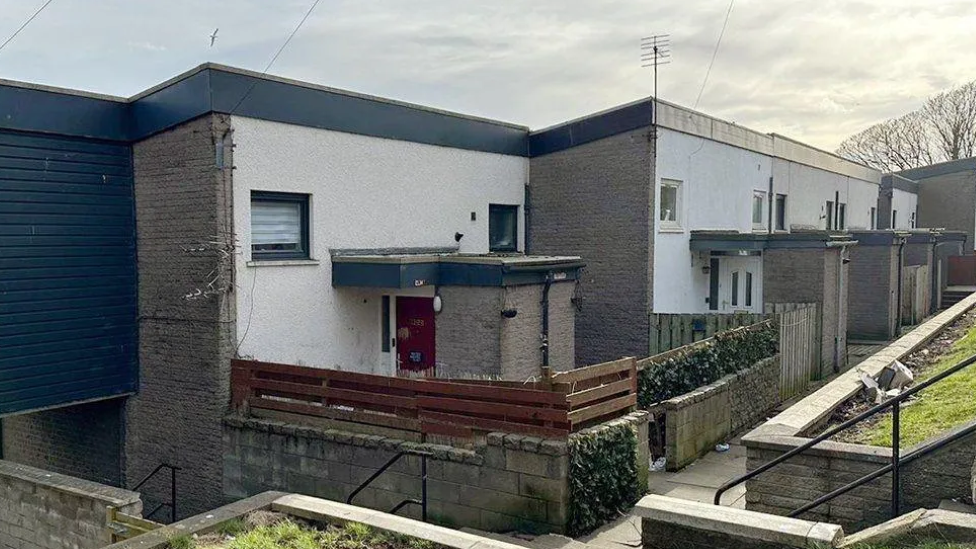Raac funding support offered to Aberdeen City Council

Hundreds of homes in the Balnagask area contain the potentially dangerous concrete.
- Published
The Scottish government has agreed a funding deal worth £10m with Aberdeen City Council (ACC) to help support residents with properties affected by reinforced autoclaved aerated concrete (Raac).
More than 500 homes in the Balnagask area contain the potentially dangerous concrete.
Housing Secretary Màiri McAllan said the move allowed the council to free up the £10m which could be used to support residents and homeowners affected by Raac.
ACC said it welcomed the invitation to bid for the funds and looked forward to discussing how they could be used.
The demolition of the properties is set to go ahead - but many private owners are yet to accept offers from the council saying the valuation is too low.
Housing Secretary Màiri McAllan said the council had been invited to apply for the money through an affordable housing scheme to "create the headroom for the council to meet the cost of remediation from within its own budget."
She said she was aware how worried residents were and understood the financial burden the council was under due to the Raac issues.
She added: "In 2016 the Scottish government committed to funding ACC through the Housing Infrastructure Fund."

Housing Secretary Màiri McAllan said the council had been invited to apply for the money
However, she said that while the council's request for £10m did not meet the criteria for that fund she had "in light of the unique circumstances" invited the local authority to seek support through the Affordable Housing Supply Programme.
"This will make a valuable contribution towards Scotland's supply of affordable housing while creating the headroom for the council to meet the cost of remediation from within its own budget, as is the correct approach," she said.
Ms McAllan added she would continue to press the UK government to create a UK-wide Raac remediation fund.
Lynn Winstanley, a private homeowner and member of the Torry Raac Community Campaign, told BBC Scotland News: "This appears to be good news, but we'll wait to receive more information on how the council proposes to use any money it applies for."
Ian Lippe, who chairs the group, also gave it a cautious welcome.
"It seems quite positive – possibly," he said.
"If it's allocated properly, it will be a sigh of relief, it will be a weight off people's shoulders.
"Folk will be able to start living again. However, we need to know the ins and outs of it."
Related topics
- Published17 September

- Published19 August
